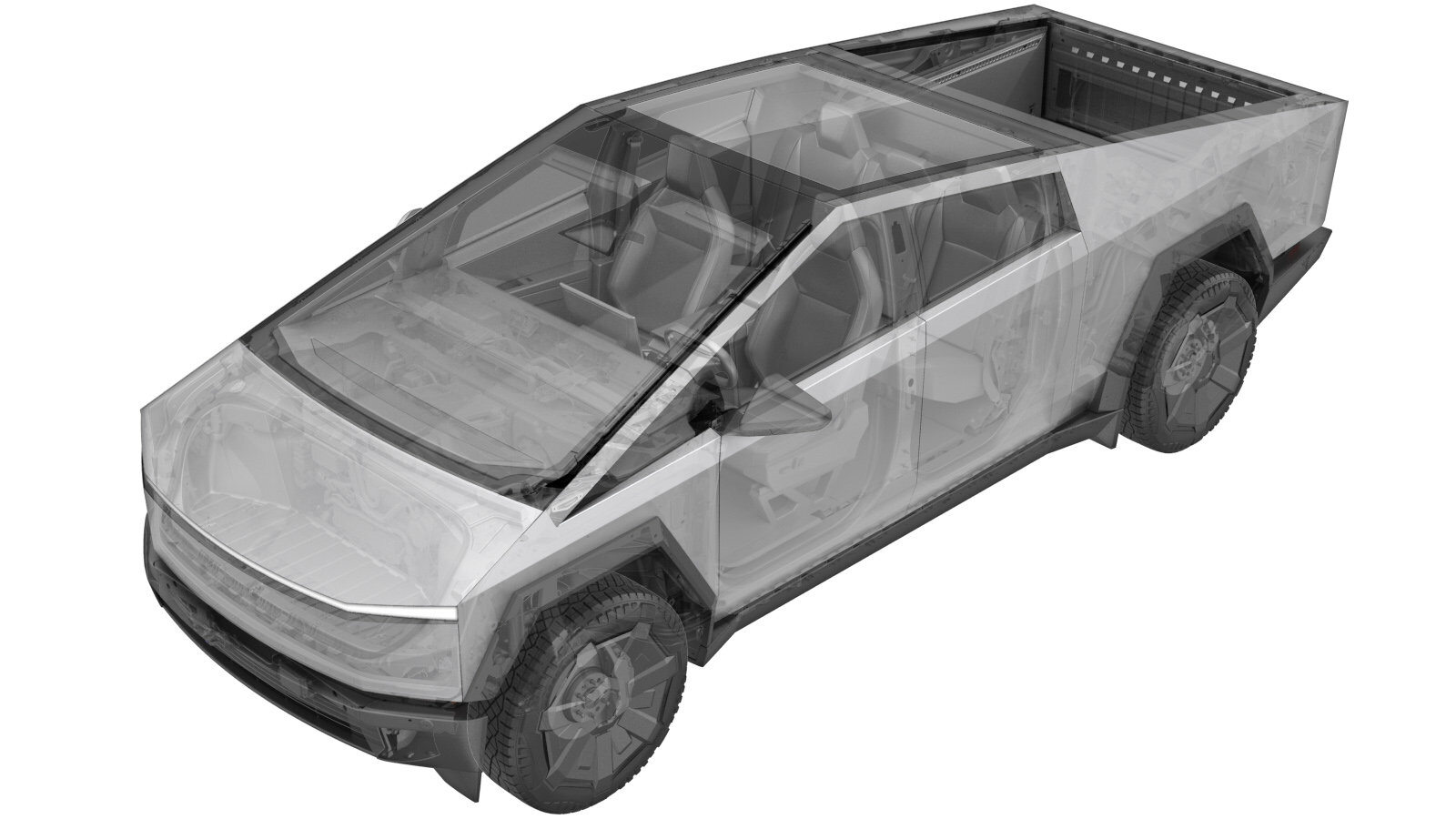2024-11-26
Doubler - HV Connector Header - DC, FC (Remove and Install)
 Correction code
1601070051
FRT
1.56
NOTE: Unless otherwise explicitly stated in the procedure, the above correction code and FRT reflect all of the work required to perform this procedure, including the linked procedures. Do not stack correction codes unless explicitly told to do so.
NOTE: See Flat Rate Times to learn more about FRTs and how they are created. To provide feedback on FRT values, email ServiceManualFeedback@tesla.com.
NOTE: See Personal Protection to make sure wearing proper PPE when performing the below procedure.
NOTE: See Ergonomic Precautions for safe and healthy working practices.
Correction code
1601070051
FRT
1.56
NOTE: Unless otherwise explicitly stated in the procedure, the above correction code and FRT reflect all of the work required to perform this procedure, including the linked procedures. Do not stack correction codes unless explicitly told to do so.
NOTE: See Flat Rate Times to learn more about FRTs and how they are created. To provide feedback on FRT values, email ServiceManualFeedback@tesla.com.
NOTE: See Personal Protection to make sure wearing proper PPE when performing the below procedure.
NOTE: See Ergonomic Precautions for safe and healthy working practices.
- 2024-11-22: Added warning to NOT skip steps to remove the tonneau slats.
Warning
Cybertruck electronics are powered by a
48V "mid voltage" or "MV" architecture that is designed to improve efficiency. Servicing
MV components requires extra knowledge and care in order to avoid personal and/or
vehicular harm. Read and understand MV precautions in Electrical Precautions and make sure any required
MV-related training courses have been completed, as applicable.
Warning
DO NOT SKIP the steps to remove the
tonneau slats. Work on or around the ancillary bay REQUIRES the removal of the tonneau
slats. Failure to remove the tonneau slats while working on or around the ancillary bay
will result in conditions that may cause personal injury.
Warning
This procedure is a DRAFT.
Although it has been validated, Warnings and Cautions might be missing. Follow safety
requirements and use extreme caution when working on or near High Voltage systems and
components.
Remove
- Remove the tonneau slats. See Slat System - Tonneau (Remove and Install).
- Remove the bed floor assembly. See Bed Floor Assembly (Remove and Install).
-
Clean all debris from the ancillary
cover.
NoteDuring removal of the ancillary cover any debris on top of the cover may be deposited into the ancillary bay.
- Open the powered frunk.
-
Open the charge port door through the
touchscreen.
- Remove the rear underhood apron. See Underhood Apron - Rear (Remove and Install).
- Disconnect MV power. See Disconnect MV Power (Modify).
-
Verify operation of the
multimeter.
NoteSet multimeter to DC voltage. Confirm multimeter is properly measuring voltage by testing MV battery. Touch lightly and do not damage terminals.
- Remove all items from pockets and ensure not wearing metal items.
-
Inspect the HV insulating
gloves.
NoteCheck gloves for damage prior to use. Refer to service document TN-15-92-003 for information on inspecting HV gloves.
-
Put on the HV insulating gloves and
leather over gloves.
-
Verify there is no high voltage
present at the charge port.
NoteMake sure to wear PPE (HV gloves, safety glasses) when working on high voltage component.WarningMeasure B+ to B-, and B+ to Ground. If voltage is greater than 10V, pack contactors are not open or welded. Stop work and reach out to Service Engineering.
-
Remove the bolt that attaches the
busbar HV connector lid.
 9 Nm (6.6 lbs-ft)TIpUse of the following tool(s) is recommended:
9 Nm (6.6 lbs-ft)TIpUse of the following tool(s) is recommended:- 10 mm socket
-
Remove the bolts (x2) that attach the
HV connector to the DC FC header.
 9 Nm (6.6 lbs-ft)TIpUse of the following tool(s) is recommended:
9 Nm (6.6 lbs-ft)TIpUse of the following tool(s) is recommended:- 10 mm socket
-
Release the HV connector from the DC
FC header, and then use an inflatable airbag to suspend the busbar assembly above the
ancillary assembly.
NoteUpon separation, check for grease around the inner perimeter of the DC FC header. If present, additional steps will need to be performed later.
-
Support the HV busbar assembly.
NoteSuspend assembly to maintain clearance.
-
Remove the bolts (x2) that attach the
fast charger header doubler.
 10 Nm (7.4 lbs-ft)TIpUse of the following tool(s) is recommended:
10 Nm (7.4 lbs-ft)TIpUse of the following tool(s) is recommended:- External Torx E10 5-Lobe
-
If grease was found around the inner
perimeter of the DC FC header, use a disposable towel to wipe the grease off the header
and the busbar connector.
NoteDo not allow the grease to contact the busbar HV mating surfaces.
Install
-
Install the bolts (x2) that attach the
fast charger header doubler.
 10 Nm (7.4 lbs-ft)TIpUse of the following tool(s) is recommended:
10 Nm (7.4 lbs-ft)TIpUse of the following tool(s) is recommended:- External Torx E10 5-Lobe
-
If grease was found inside the DC FC
header, prepare the grease gun with Mobil XTCE grease, apply a 6 mm diameter continuous
bead around the DC FC header inner perimeter, and then use a gloved finger wetted with
alcohol to smear the grease up the inner wall to a height of 10 mm.
NoteThe grease is part number 1089958-00-A and is available from eProcurement.
-
Clean the HV connector contact surface
of residual Penetrox.
NoteAllow 1 minute dry time after removing the Penetrox.NoteNew busbar comes with Penetrox applied to HV connector
-
Clean the busbar HV connector contact
surface of residual Penetrox.
NoteAllow 1 minute dry time after removing Penetrox.NoteIt is necessary to clean the HV connector during reuse of the busbar.
-
Apply Penetrox onto the HV connector
joints.
NoteApply 2 drops of Penetrox A-13 about 5 mm in diameter to either side of the hole on both leads. Spread evenly to verify the contact surface is fully covered.
-
Position the busbar electrical
connector and lower onto the HV header.
NoteRelease the support.
-
Install the bolts (x2) that attach the
charge port busbar kit to the HV header.
 9 Nm (6.6 lbs-ft)TIpUse of the following tool(s) is recommended:
9 Nm (6.6 lbs-ft)TIpUse of the following tool(s) is recommended:- 10 mm socket
-
Inspect the HV insulating
gloves.
NoteCheck gloves for damage prior to use. Refer to service document TN-15-92-003 for information on inspecting HV gloves.
-
Put on the HV insulating gloves and
leather over gloves.
-
Perform Hioki resistance test at each
HV joint from the HV busbar lead to the bolt head.
Notex2 HV joints.NoteWhen using the Hioki tester, verify the meter has been properly adjusted and set prior to usage.NoteThe acceptable resistance is between 0.050 mΩ (50 μΩ) and 0.195 mΩ (195 μΩ). If the resistance is greater than 0.195 mΩ (195 μΩ), there is too much resistance in the High Voltage joint. Remove the fastener, clean areas with isopropyl alcohol, install fastener back and test again. If the resistance is lower than 0.050 mΩ (50 μΩ), reposition the probes and measure again. If the resistance is repeatedly between 0.00 mΩ and 0.050 mΩ (50 μΩ), the hioki test passed, proceed to next step.
- Remove the leather over gloves and the HV insulating gloves.
-
Install the bolt that attaches the
busbar HV connector lid.
 9 Nm (6.6 lbs-ft)TIpUse of the following tool(s) is recommended:
9 Nm (6.6 lbs-ft)TIpUse of the following tool(s) is recommended:- 10 mm socket
- Install the bed floor assembly. See Bed Floor Assembly (Remove and Install).
- Reconnect MV power. See Disconnect MV Power (Modify).
- Install the rear underhood apron. See Underhood Apron - Rear (Remove and Install).
- Close the powered frunk.
- Install the tonneau slats. See Slat System - Tonneau (Remove and Install).